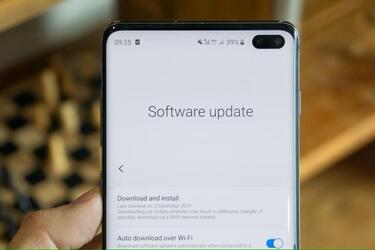New Android policy: impact on Samsung's adoption of seamless updates

UAportal has reported that Android stands for seamless updates, which first appeared in Google Pixel smartphones in 2016. However, Samsung is resisting the adoption of this new system. Although the company has steadfastly avoided implementing seamless updates, it may become increasingly difficult for it to continue to ignore this system in the near future.
What is known
The feature allows users to continue to use their smartphones while updates are downloaded and installed. While the inactive partition is going through the update process in the background, users can maintain continuous access. Upon rebooting, the phone seamlessly switches to the updated partition.
Until now, Samsung has chosen to stick to the traditional update method and avoided introducing seamless updates. Even the latest Galaxy S24 series, Samsung's flagship devices, do not have this feature. Although it was expected that Android 13 might force Samsung to switch to the new update method, Google did not make seamless updates a mandatory requirement.
Changes
However, according to comments found in the Android Open Source Project (AOSP), there is a potential change to the status quo. This means that Android is preparing to gradually stop supporting updates that are not automatic. In short, only various forms of seamless updates will likely be supported in the future.
The traditional update method has some advantages, such as less memory and generally a faster update process. However, using this method means that user interaction is required to monitor the download process until it is complete.
For Google to force Samsung to use automatic updates, the inclusion of seamless updates would have to become part of Android's compatibility requirements or be mandatory through GMS (Google Mobile Services) license agreements for access to Google apps. Although the company set out to fulfill these requirements after the release of Android 13, it ultimately failed to do so. As a result, Samsung's Galaxy smartphones continue to lose the ability to seamlessly update.
If you want to get the latest news about the war and events in Ukraine, subscribe to our Telegram channel!
